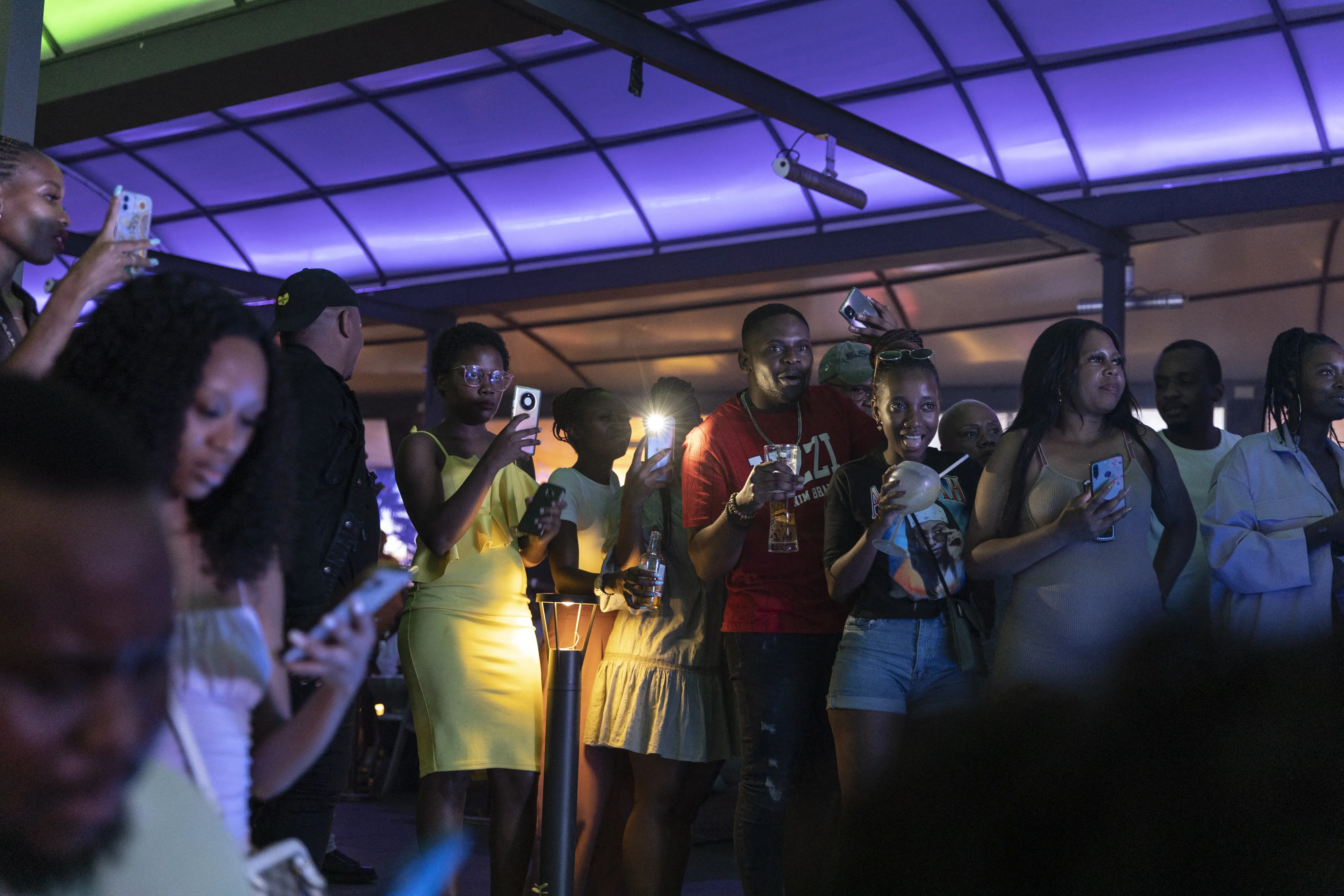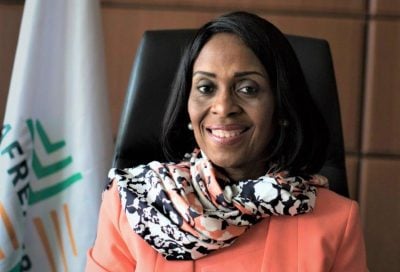Of the estimated 5.17bn social media users globally, approximately 384m are in Africa, according to a market-research report by Statista. Though Africa may account for barely 8% of global social media users, the continent has seen a huge increase in social media usage in recent years, with better-connected northern and southern Africa leading the charge.
With internet and smartphone access improving year by year, young Africans in particular are flocking to social media for news, entertainment, and social connections. With such a huge untapped population, global social media giants – and the businesses that flock to them – spy a vast new frontier for growth.
Silicon Valley and Chinese giants are already making substantial inroads. According to a recent GeoPoll study of around 2,500 social media users in Ghana, Kenya and South Africa, Facebook leads in active user engagement, with 82% of participants actively using the platform.
China’s TikTok, which has become one of the fastest-growing social media platforms on the continent, follows closely with a 60% active user rate.
Instagram, TikTok’s main competitor globally and on the continent, captured the attention of 54% of participants, while X (formerly Twitter), which remains a key platform for real-time communication, news dissemination, and political discourse, secured an active user percentage of 49%. LinkedIn achieved 28% engagement and Snapchat achieved a 25% active user base.
An online survey published by Statista revealed that Nigerians spent the most time per day on social media in Africa. As of the first quarter of 2023, they averaged three hours and 44 minutes per day on various platforms. South Africans and Kenyans followed closely, spending three hours and 34 minutes and three hours and 32 minutes per day, respectively. Egyptians and Moroccans are keen users, with two hours and 40 minutes and two hours and 16 minutes respectively.
Social commerce has arrived
Unsurprisingly, brands and advertisers see huge economic opportunities in the user surge. In South Africa, for example, consultancy PwC expects digital advertising to accelerate rapidly over the next three years.
“Digital has accounted for over half of advertising spend in South Africa since 2020, and by 2027, it is expected to take 63.6% of ad spend,” PwC notes in its Africa entertainment and media outlook report.
Advertising company Ogilvy South Africa says that, for marketers and businesses, social media presents an opportunity to drive greater returns by sharpening ad targeting, boosting conversion rates, and driving commercial success. “Social is immensely data rich. Modern marketing transformation is driven by data and most social data is available for free for marketers to leverage,” the agency notes. “The use of social data can range from intelligence about consumers, competitors or specific categories, all the way to the creation of hyper-relevant communications, content and experiences through targeting and personalisation.”
Social media can also help African businesses make an easier transition to e-commerce, the firm says.
“Social commerce has arrived. It is now the fastest-growing capability in social media, allowing brands to accelerate the transition to the e-commerce world without heavy investments in IT or tech. Instead of waiting for a full e-commerce approach to be developed and implemented, companies can test and learn through social commerce and accelerate value creation,” it notes.
The rise of the influencer
As an increasing number of brands and advertisers in Africa turn to social media, more are choosing to partner directly with influencers to reach consumers in more creative ways. These uniquely structured brand partnerships, which have become fairly common across many social platforms, have launched lucrative careers for African creatives with huge social media audiences.
When it first broke into the mainstream, influencing was rashly dismissed as a self-indulgent pursuit, predominantly associated with youngsters eager for online attention. However, there’s mounting evidence indicating that content creation can be a rewarding full-time job when done professionally.
Across Africa, numerous influencers have successfully leveraged their substantial social media followings to build thriving careers. Perceptions have also changed significantly, with more people viewing influencing as a credible and promising career path for creatives.
However, despite positive shifts in perceptions, content creators in Africa still face widespread misconceptions about the nature of their jobs, argues Foyin Ogunrombi, a Nigerian-South African content creator with 21,000 Instagram followers.
An “annoying misconception”, she says, is that many people imagine content creation and influencing to be an easy job. “People underestimate the amount of work involved.”
“There’s a lot of scrutiny and pressure. We’re always having to come up with new ideas. Editing is very laborious,” she explains. “You are literally a 10-person team, often in one person. People like to downplay it because it looks easy, but that’s the point. It’s supposed to look easy.”
Social media platforms such as Facebook, Instagram, TikTok, and YouTube have introduced various monetisation programmes to help content creators in Africa and globally earn from their work. However, for most creators, especially those without millions of followers, these programmes alone are often insufficient to generate a substantial income. Independent brand partnerships and other online ventures such as e-commerce are leveraged in an attempt to achieve meaningful earnings.
Transforming the political landscape
The growing popularity of social media in Africa is not only creating opportunities in digital marketing and e-commerce but also transforming the continent’s political landscape. Proponents of democracy and free
speech in Africa argue that social media has significantly enhanced civic engagement, helping to deepen democracy, promote good governance, and entrench accountability.
Platforms such as X, Facebook, and WhatsApp have become essential tools for political campaigning, mobilising voters, and facilitating public discourse.
Platforms have emerged as powerful instruments for organising protests and resistance movements, with mass movements like Nigeria’s #EndSARS generating huge momentum online.
In October 2020 this hashtag took Nigeria by storm, calling for the disbandment of Nigeria’s Special Anti-Robbery Squad (SARS) which was accused of perpetrating a spate of extrajudicial killings of innocent civilians.
The hashtag trended on X for weeks and garnered comment from global leaders, including United Nations secretary-general António Guterres and US President Joe Biden.
While social media has been credited with enhancing civic engagement in Africa, critics argue that its unregulated use in politics raises significant risks of misinformation and the spread of fake news.
A recent survey by security awareness training platform KnowBe4 highlights these concerns. Conducted in June, the survey examined political misinformation (unintentionally sharing false information) and disinformation (deliberately spreading fake news) in Africa. It found that excessive reliance on social media for news consumption greatly increases the risk of spreading inaccurate information: “80% of respondents are consuming news on Facebook and over 50% use TikTok. This is alarming as neither of these channels is very reliable in terms of news,” said Anna Collard, senior vice president of content strategy at KnowBe4.
The survey, which included 500 participants from Botswana, Kenya, Mauritius, Nigeria, and South Africa, revealed that 82% of respondents felt confident in their ability to distinguish between true and false information online. However, Collard expressed scepticism. “While most respondents reported being able to tell the difference between real and fake news, I doubt this is the case. Other research has shown that most people overestimate their ability to detect deepfakes, and ironically, more people trust AI-generated images than actual photographs,” she argued.
Collard also noted that political actors frequently use a mix of human trolls, partially automated accounts, and fully automated bots on platforms like Facebook, TikTok, and X to spread false information about candidates before elections. According to the Africa Centre for Strategic Studies, there has been a nearly fourfold increase in disinformation campaigns in Africa since 2022. Even more alarming is the revelation that nearly 60% of these campaigns are sponsored by foreign states, with Russia and China emerging as the primary culprits.
Amid growing concerns over the spread of fake news, regulators in Africa have adopted a stringent approach towards social media companies, urging them to enhance content moderation, fact-checking, and enforcement against propagators of harmful content.
Social media firms’ data harvesting strategies have raised privacy concerns, while firms’ sophisticated algorithms are coming under increasing scrutiny for the way in which they can manipulate user behaviour, for example by confining users to silos of like-minded individuals.
Experts have also called for broader regulatory measures to address other negative influences of social media. Studies by scholars from the University of Cape Town and the University of Zimbabwe highlight several adverse effects, including anti-social behaviour, cyberbullying, criminal activities, sensationalism, hate speech, and xenophobia.
Ground-down gatekeepers
Recent lawsuits in Kenya against tech giant Meta – owner of Facebook, WhatsApp and Instagram – have shed light on the toll that content moderation work can take on individuals in this line of work. Most of those who sift through users’ – and bots’ – postings are employed through sub-contractors. A content moderator alleged in a lawsuit that the company exploited him and his colleagues and damaged their mental health through prolonged exposure to harmful material.
Content moderation jobs are essential. Moderators act as gatekeepers of harmful content posted on the internet. However, these jobs are often low-paying, emotionally taxing, and extremely stressful. Workers are often exposed to violent, racist and sexual material. This highlights the need for tech giants to offer more comprehensive support for content moderators.
However, even as regulators work with big tech companies to ensure social media is safe for both users and content moderators, experts caution that a delicate balance must be maintained.
They contend that, without careful oversight, some regimes might use concerns around safety, privacy, or fake news as excuses to crack down on popular social media platforms, restrict freedoms and suppress dissent. Unsurprisingly, authoritarian governments on the continent have seized on allegations of disinformation to regulate or ban social media networks at a whim, particularly around fraught elections.
“The world faces a pressing need to strike a balance between holding big tech companies accountable and preserving the principles of free speech and access to information,” says Demas Kiprono, deputy executive director of the Kenyan chapter of the International Commission of Jurists.
“The challenge lies in developing frameworks that ensure technology serves the public good without infringing national sovereignty or individual rights.”
Want to continue reading? Subscribe today.
You've read all your free articles for this month! Subscribe now to enjoy full access to our content.
Digital Monthly
£8.00 / month
Receive full unlimited access to our articles, opinions, podcasts and more.
Digital Yearly
£70.00 / year
Our best value offer - save £26 and gain access to all of our digital content for an entire year!

 Sign in with Google
Sign in with Google 



